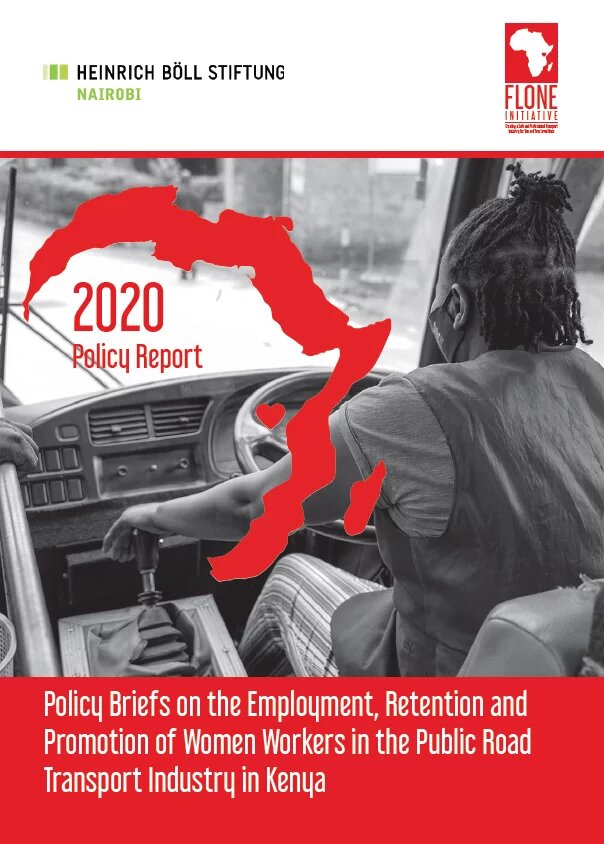
This report highlights an urgent call for a policy environment that recognizes and values an efficient public transport system as an important economic development driver that respect the rights and needs of workers.

A Policy Brief on the Employment, Retention and Promotion of Women Workers in the Public Road Transport, launched on 25 Nov 2020, includes an urgent call for a policy environment that recognizes and values an efficient public transport system as an important economic development driver that respect the rights and needs of workers.
The policy brief report supported by hbs, Nairobi Office, is as a result of a study by Flone Initiative on working conditions and policy gaps in employment, retention and promotion of women in public road transport work. The report reveals challenges women workers face with regards to recruitment, retention and promotion, resulting in their low representation and participation in this industry.
The report also reveals that the industry is male dominated and few women apply to work in the sector due to social cultural barriers that reinforce stereotypes, assumptions and prescriptions about suitability for particular forms of work as 40% face gender discrimination and 56% don’t consider their SACCOs or companies as equal opportunity employers, structural barriers such as long working hours as majority work 6 days a week for over 12 hours a day and 60% being in precarious working arrangements , economic factors as 42% of women workers would quit work due to low pay (Ksh 10,000-15,000 monthly), and environmental factors such as insecurity and little consideration for occupational health and safety as 62% don’t have any medical cover and are not insured in case of accidents.
Sexual harassment on female workers is a critical issue in the report as findings reveal that majority of them have experienced some form of sexual harassment at work. The report further reveals that 79% had experienced some form of sexual harassment at work. However, it emerged that while it is a requirement by the Employment Act 2007, PSV SACCOs don’t have documented sexual harassment policies or reporting and response mechanisms for the same. Moreover, employer’s code of conduct did not have any documented clause prohibiting sexual harassment or giving clear guidelines on how it can be addressed if or when it occurs.
The findings of this report uncover that majority of female transport workers (55%) have no additional training or certifications apart from their basic or secondary education since they may not have time for personal development or academic advancement due to long working hours in the sector. Additionally, besides wages, (66%) of women workers don’t have any additional benefits including maternity leaves, promotions or paid leaves since they are casuals.
Read the full report : Policy Briefs on the Employment, Retention and Promotion of Women Workers in the Public Road Transport Industry in Kenya